National
Humanitarian ministry partners SCI as monitor for NSIP programs
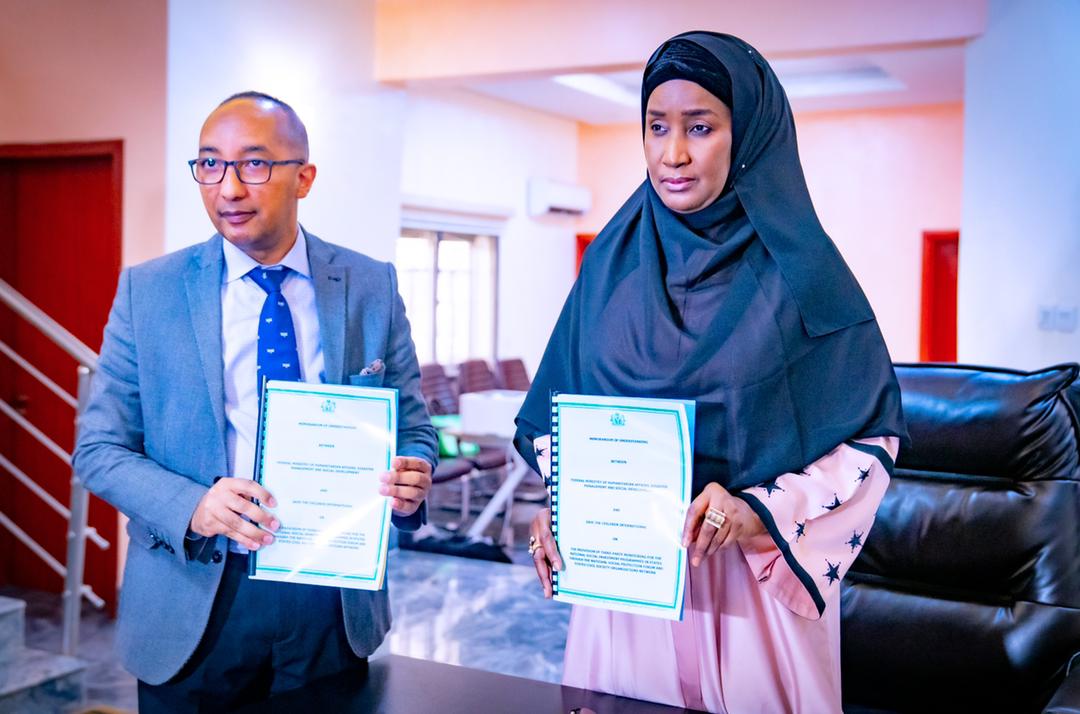
The Ministry of Humanitarian Affairs, Disaster Management and Social Development has signed a one-year partnership with Save the Children International, to monitor federal government’s National Social Investment Programmes in the states as a third party.
Special Adviser on Media to the minister Nneka Ikem Anibeze in a statement said the Memorandum of Understanding was signed on Tuesday November 1, 2022 in Abuja.
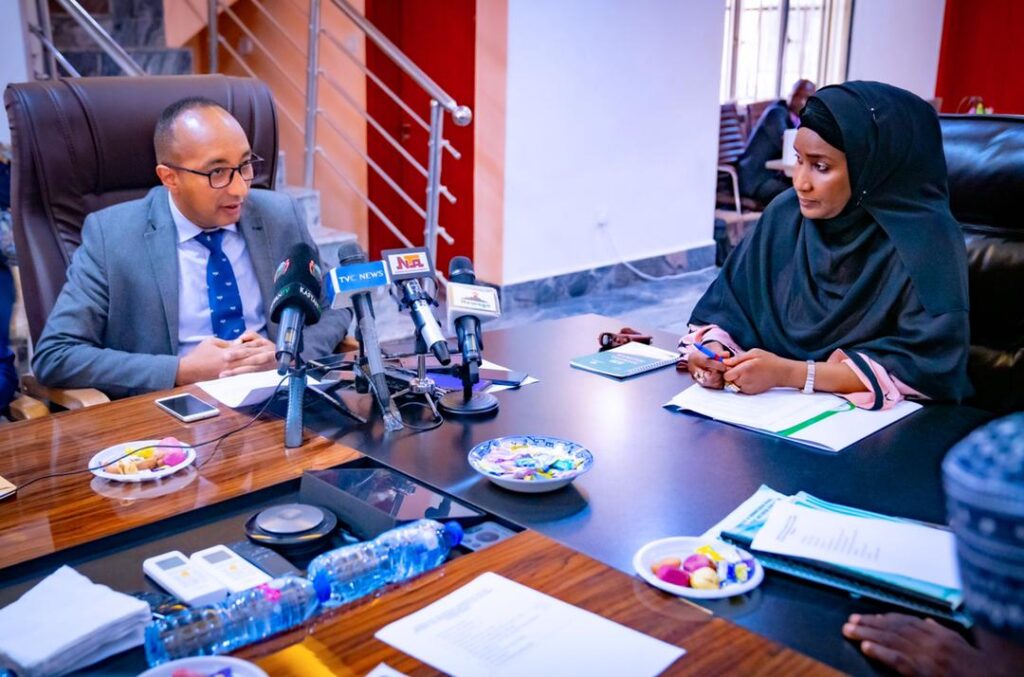
At the ceremony, the statement quoted the Minister, Sadiya Umar Farouq to have inducated that monitoring of NSIP and other activities of the Ministry will increase citizens’ trust in government.
She added that monitoring will hasten the effectiveness of the NSIP to achieve Mr President’s directive of lifting 100 million Nigerians out of poverty by 2030.
“The need to closely Monitor and Evaluate (M&E) these investments is an important component of the NSIP and its role in program implementation cannot be underrated. “This is the Primary reason why the Ministry deliberately launched a strategy on M&E at many levels. At the local level, the Ministry engaged the services of 7,500 Independent Monitors (IMs) spread across the 36 states of the Federation and the Federal Capital Territory.
“These 7500 Independent Monitors are currently on the field monitoring the implementation of the NSIP. Every month, over 250,000 unique programme reports are submitted by the Independent Monitors.
“To further foster accountability, transparency and effectiveness, through this M&E strategy, I directed the engagement of Civil Society Organizations as an additional layer of close monitoring.
“Through this partnership, Save the Children International will engage the services of eighteen (18) other Civil Society Organizations (CSOs) to provide third party monitoring of NSIPs.
“These CSOs will provide independent reports on NSIPs in the states they deliver their support. Furthermore, they will provide additional capacity building to the Independent Monitors as well as carry out spot checks in locations of the NSIP Implementation. “I am therefore delighted to officially endorse this partnership document to enable the onboarding of Third-Party Civil Society Organizations as an additional layer of monitoring for the National Social Investment Programme”.
The Minister appealed to the Civil Society Organizations being engaged and other relevant stakeholders involved in the monitoring of NSIP to take the assignment patriotically as part of their contribution to Nation Building.
In his remarks, the Country Director who was represented by the Director of Program Mr. Faton Krasniqi expressed appreciation for the role and achievements of the Ministry in advancing the well being and development of Nigerians.
“Global best practices in implementing Social Interventions describe a process for mainstreaming Social Accountability through a step by step process that builds on communications and awareness activities, empowering beneficiaries.
“It is believed that this will encourage transparency and accountability behavior from service providers, as well as be a mechanism through which beneficiaries and their communities can gain confidence in their ability to effect positive change. An effective Social Accountability mechanism will help in improving service levels to the Citizens, thereby ensuring that government gets a better return on investment “.
Save Our Children International will finance hand-picked Independent Monitors and finance their training through the Civil Society Organizations to enhance delivery. They will also embark on validation visits to ensure quality assurance of CSOs and Independent Monitors and joint Monitoring and Evaluation visits with staff of the Ministry periodically.
National
Edo Governor Joins National Economic Deliberations
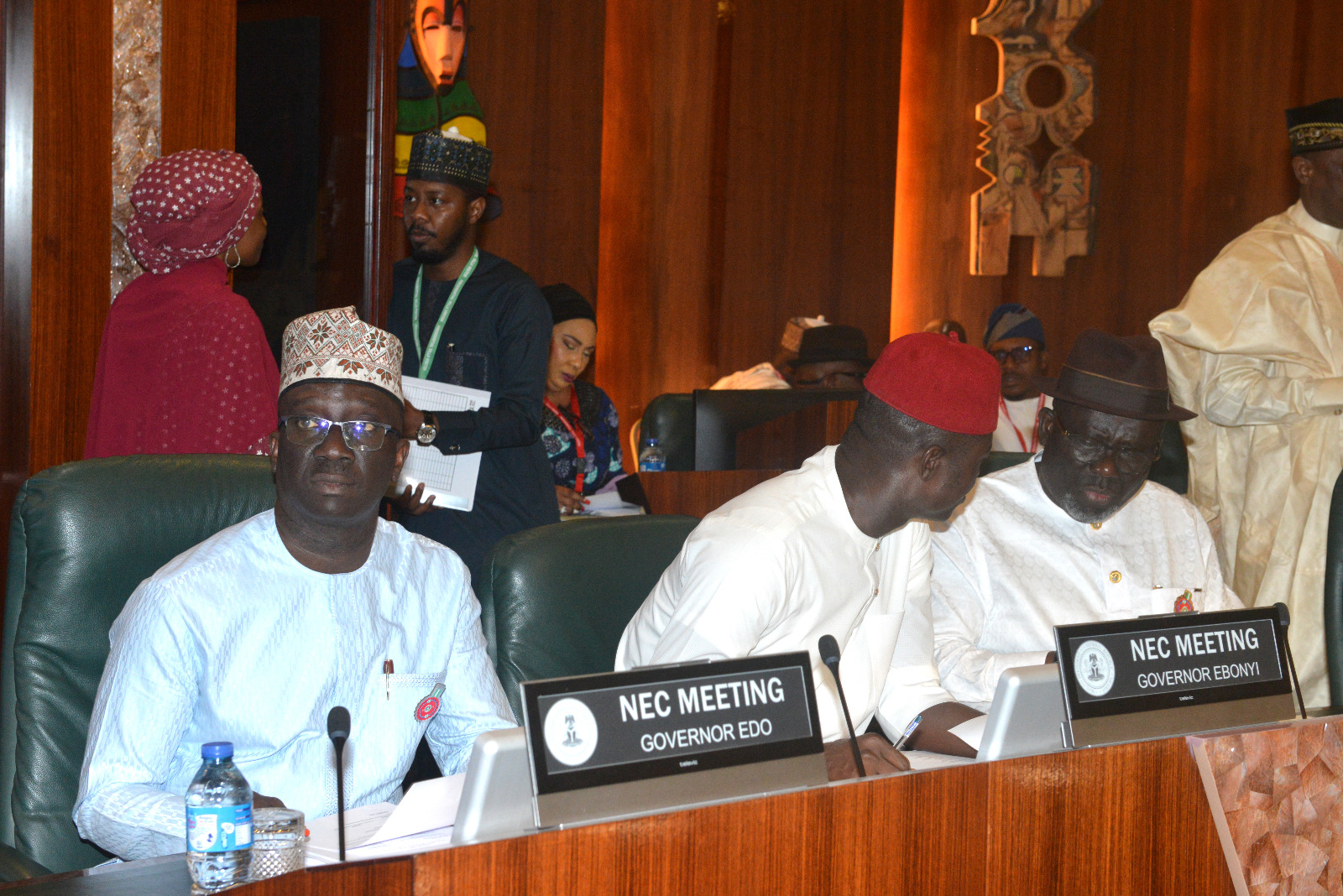
Edo State Governor, Senator Monday Okpebholo, attended his inaugural National Economic Council (NEC) meeting on Thursday at the State House Council Chambers in Abuja.
The session was presided over by Vice President Kashim Shettima.
The NEC serves as a vital forum for state governors, deputy governors, and the federal government’s economic team to discuss and address key economic challenges.
In a gesture to mark his first appearance, Governor Okpebholo was invited by Vice President Shettima to lead the opening prayer after the national anthem.
This event underscores Edo State’s active commitment to collaborating on national economic policies and driving solutions for Nigeria’s progress.
National
At Achebe Forum, Obasanjo Labels Nigeria a ‘Failing State’ Criticizes Tinubu’s Leadership
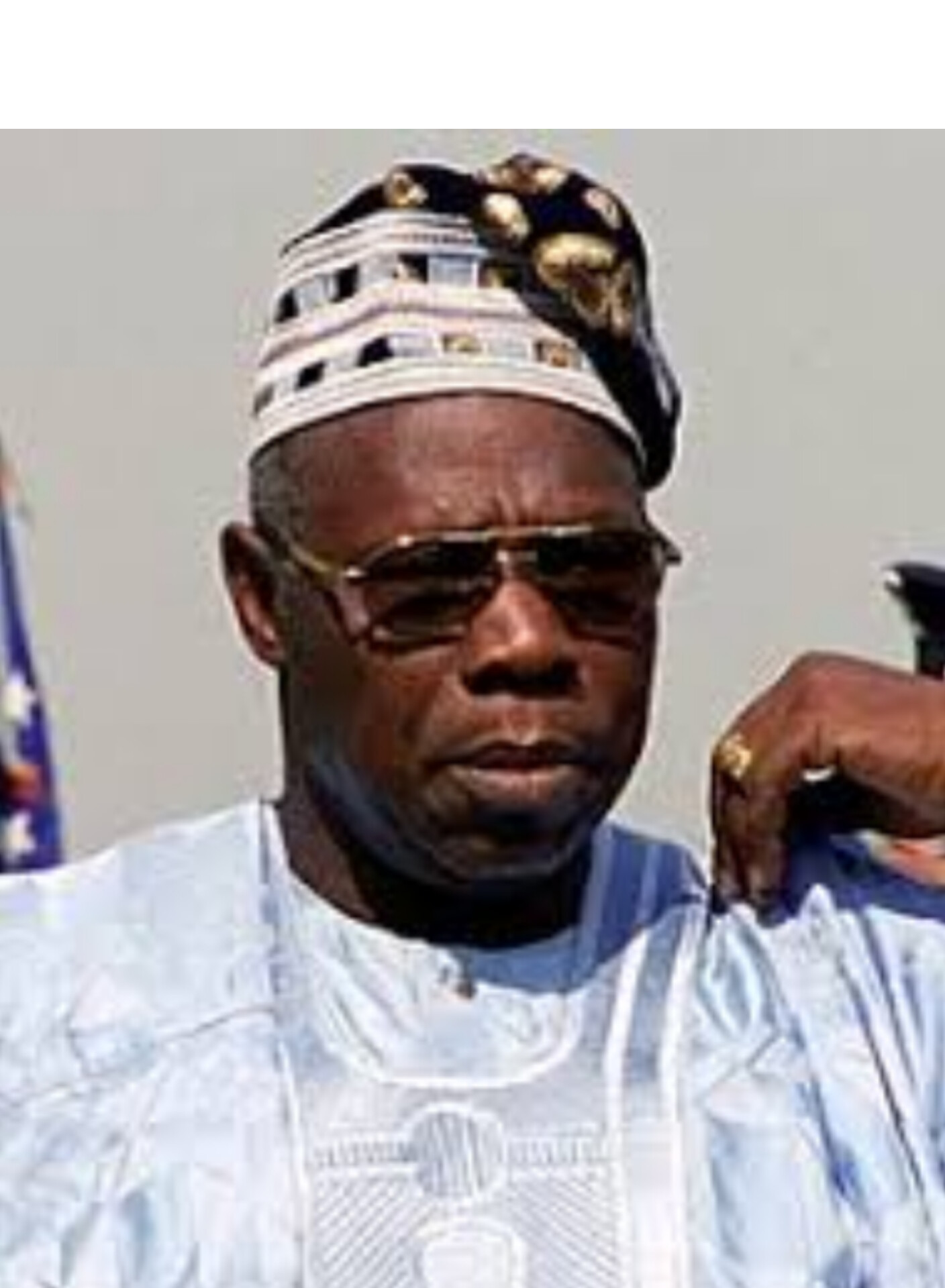
Former President Olusegun Obasanjo has expressed sharp criticism of President Bola Tinubu’s administration, stating that Nigeria’s decline is now evident to “every honest observer.”
Speaking at the Chinua Achebe Leadership Forum at Yale University in the U.S., Obasanjo attributed the country’s deteriorating state to leadership failure, pointing specifically to Tinubu’s governance, which he referred to as “Baba-go-slow and Emilokan.”
In his keynote address titled “Leadership Failure and State Capture in Nigeria,” Obasanjo highlighted that pervasive corruption and mismanagement have worsened Nigeria’s challenges, driving the country deeper into insecurity, division, and underdevelopment.
He quoted the late writer Chinua Achebe, who in his book The Trouble with Nigeria argued that the country’s fundamental problem is a failure of leadership, not a flaw in its people or resources. According to Obasanjo, this diagnosis remains as relevant today as it was over 40 years ago.
Obasanjo cited works by American experts Robert Rotberg and John Campbell, who have characterized Nigeria as a “failed state.” Their argument, he noted, suggests that Nigeria’s inability to maintain security and stability has serious implications for Africa and the world at large.
Additionally, the former President described “state capture” as a pressing issue in Nigeria, where powerful individuals and groups exploit government resources and policies for personal gain. Obasanjo argued that this corruption undermines national interests, with influential elites shaping the country’s legal and economic systems to benefit themselves. Such practices, he warned, compromise public welfare, affecting the quality of education, healthcare, and infrastructure development.
In reflecting on Achebe’s legacy, Obasanjo praised the late author’s commitment to truth and the moral foundation he established for Nigeria. He urged Nigerians and the international community to recognize the dangers of state capture and work towards restoring a governance model that prioritizes the public good.
National
Sule Lamido, Shehu sani disagree over National Security Adviser
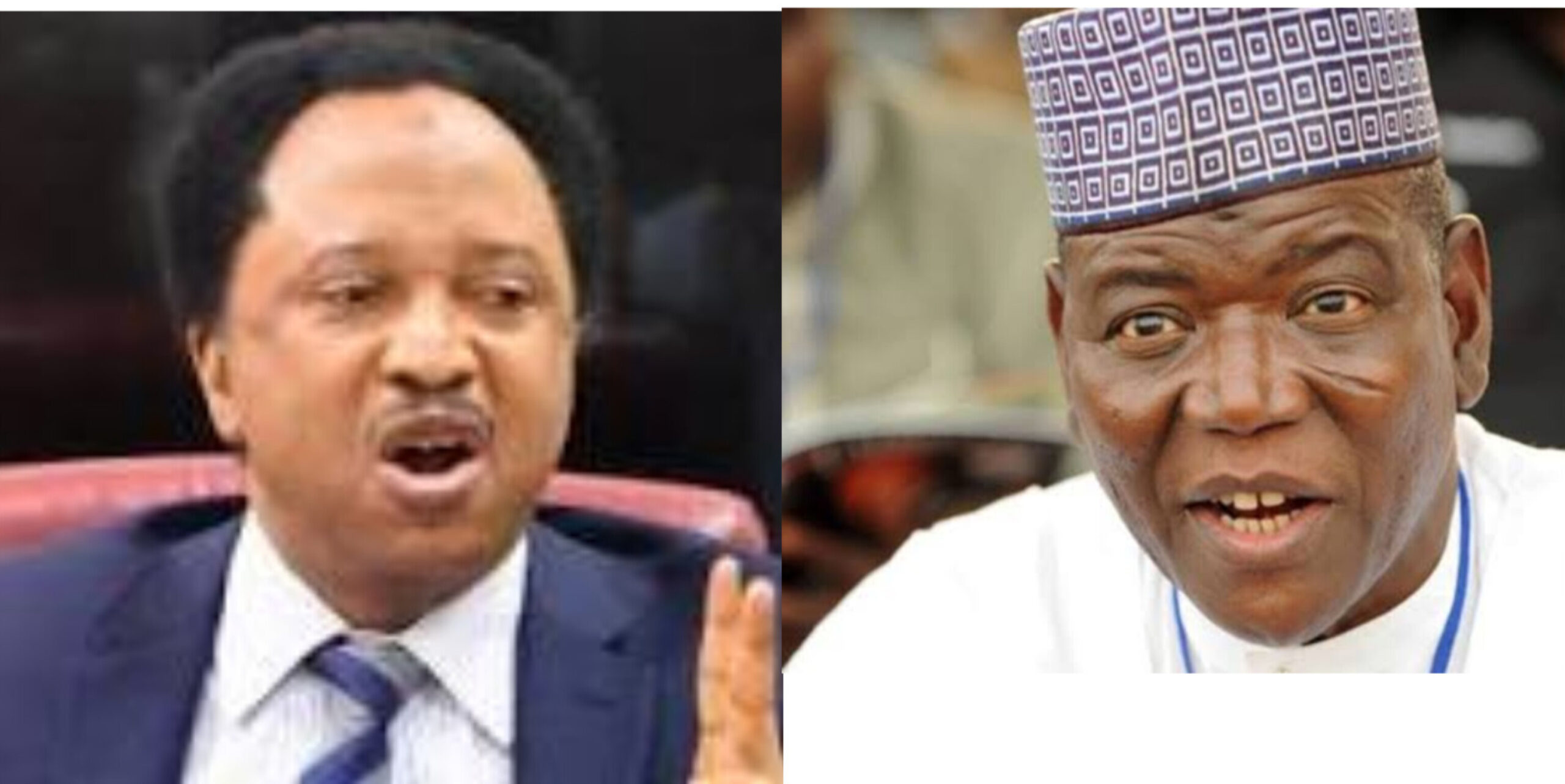
The senator who represented Kaduna Central Senatorial District in the 8th National Assembly, Shehu Sani has disagreed with a former Governor of Jigawa State, Sule Lamido over national security issues
Lamido had taken a strong position against the current National Security Advisor (NSA), Nuhu Ribadu accusing him of compromising his professional integrity and acting more like a spokesperson for President Bola Tinubu than fulfilling his constitutional role.
Sani advised Lamido to at least appreciate how the Tinubu led Administration tackled insecurity instead of politicizing it in his comment on the National Security Adviser.
Ribadu who was basking in the euphoria of the recent claims of decimating the insurgents cautioned anyone “not to dare Tinubu”, espercially the new Lakurawa Insurgents a development which infuriated the former governor of Jigawa State and a Chieftain of the Peoples Democratic Party,(PDP), prompting him to take to his verified facebook wall to describe the NSA as “loquacious, flippant and qualified to have been Tinubu’s Minsiter of Information instead of NSA.”
Lamido Criticizes NSA for Sycophantic Behavior, Urges Focus on Duties.
Lamido in his comment had expressed concerns over the NSA’s behavior, particularly his past actions as the Chairman of the Economic and Financial Crimes Commission (EFCC) under President Olusegun Obasanjo. Lamido reminded Nigerians of the NSA’s controversial remarks, including his public labeling of prominent governors—such as Tinubu, Kalu, and Akume—as the “most corrupt.” Lamido pointed out the stark contradiction between the NSA’s earlier criticisms and his current position, serving under the same figures he once condemned.
The former governor called the NSA’s decision to join the administration of President Tinubu—a leader he previously described as corrupt—a “singular mistake,” one that Lamido believes has tarnished the NSA’s credibility and character. “You are not a spokesperson for the President, you are a National Security Advisor,” Lamido emphasized, urging the NSA to return to the professionalism that has historically defined the role.
Lamido argued that previous holders of the NSA position, including the late Umaru Shinkafi, General Gusau, and Colonel Dasuki, all displayed discipline and a low profile, focusing on security matters without resorting to public displays or sycophantic behavior. Lamido lamented that the current NSA’s behavior reflects a departure from this standard, pointing to his increasingly vocal and partisan approach.
Rather than fulfilling his duties as an anonymous and diligent security advisor, Lamido claimed that the NSA’s moral dilemma and excessive displays of loyalty to the president have shifted him into the role of a “Minister of Information,” undermining the neutrality and importance of his position.
In closing, Lamido urged President Tinubu to allow his NSA to regain focus, remove his fears, and return to the professional standards expected of someone in such a sensitive and critical role. The criticism continued to ignite debates about the role of the NSA and the expectations of public office holders in Nigeria, with many calling for greater transparency and consistency from those in power.
Reacting, Shehu Sani countered Lamido in a statement on Friday in Abuja, saying there should be a credit and a commendation for an administration that inherited multi-faceted security challenges ,but which has been reduced to the barest minimum, wondering how the elderly statesman failed to acknowledge the many triumphs of government in bandits hotbed regions in the north.
Sani who served in the upper legislative Chamber in the 8th National Assembly said, he witnessed to the appropriation budget allocated to security which unfortunately did not abate security challenges before now, expressing that Nuhu Ribadu has achieved what many of his predecessors have failed to accomplish despite the hundreds of billions spent in the name of defence and security in the past;
According to him, bandits have been neutralized to a large extent, thus encouraging government in this direction until total victory should have been ideal rather than playing haywire politics which he said may not help the yet-volatile situation in the North.
He said: “Neutralisation of top bandit leaders, end to mass abductions of students in northern schools,
“Securing rail lines and major northern highways hitherto notorious for kidnappings. The prompt response to terrorist attacks on power lines is worth mentioning.
“Security challenges are not over but in all indices of comparison, he has performed better and set unprecedented records. His political critics are fully entitled to their views ,but his delivery on his mandate is unparalleled.”, Sani concluded.
-

 Crime1 year ago
Crime1 year agoPolice nabs Killer of Varsity Lecturer in Niger
-

 News10 months ago
News10 months agoFCT-IRS tells socialite Aisha Achimugu not to forget to file her annual returns
-

 Appointment1 year ago
Appointment1 year agoTinubu names El-Rufai, Tope Fasua, others in New appointments
-

 News From Kogi1 year ago
News From Kogi1 year agoINEC cancells election in 67 polling units in Ogori-Magongo in Kogi
-

 News From Kogi1 year ago
News From Kogi1 year agoEchocho Challenges Tribunal Judgment ordering rerun in 94 polling units
-

 News1 year ago
News1 year agoIPOB: Simon Ekpa gives reason for seperatists clamour for Biafra
-

 Metro8 months ago
Metro8 months ago‘Listing Simon Ekpa among wanted persons by Nigeria military is rascality, intimidation’
-

 News10 months ago
News10 months agoKingmakers of Igu/ Koton-Karfe dare Bello, urge him to reverse deposition of Ohimege-Igu
